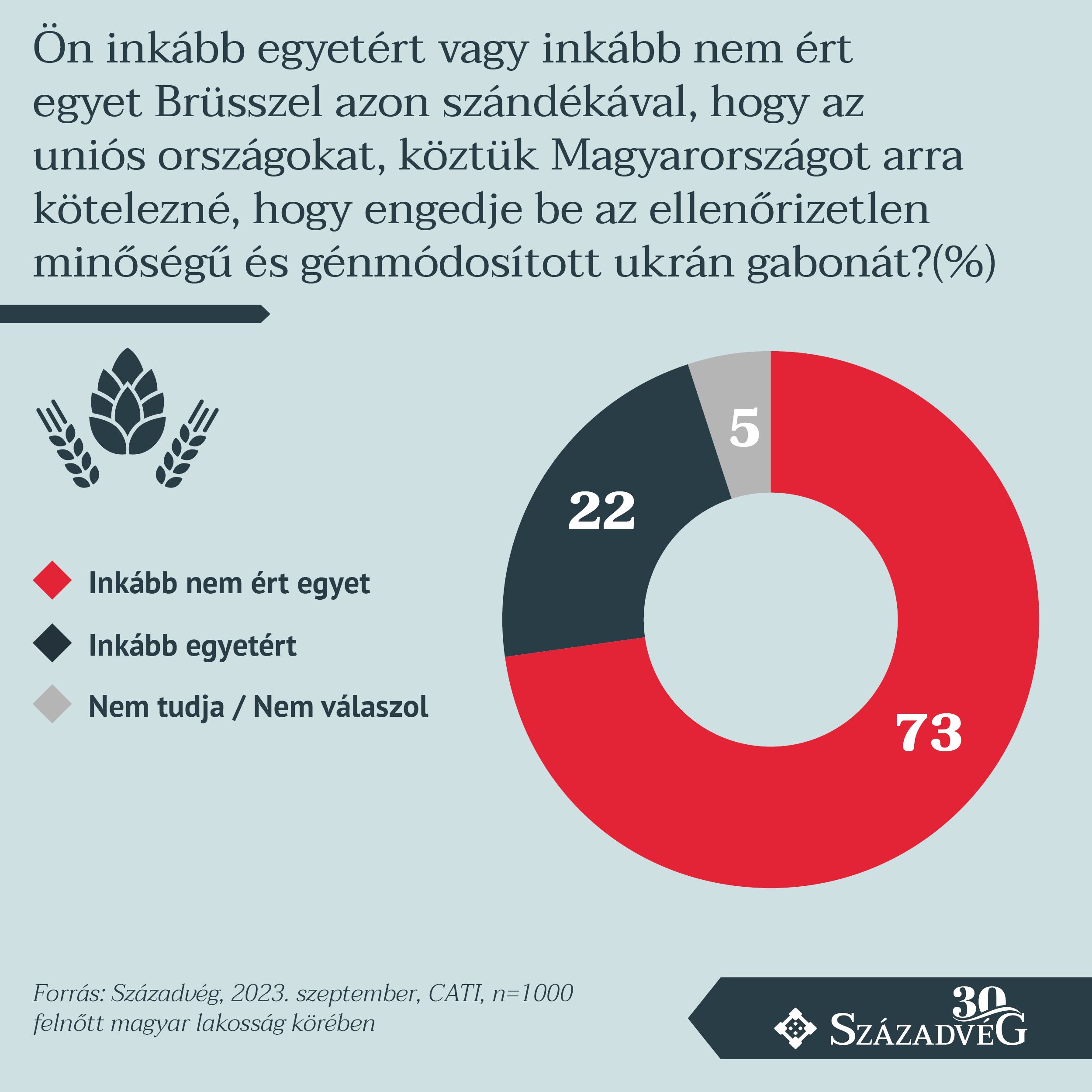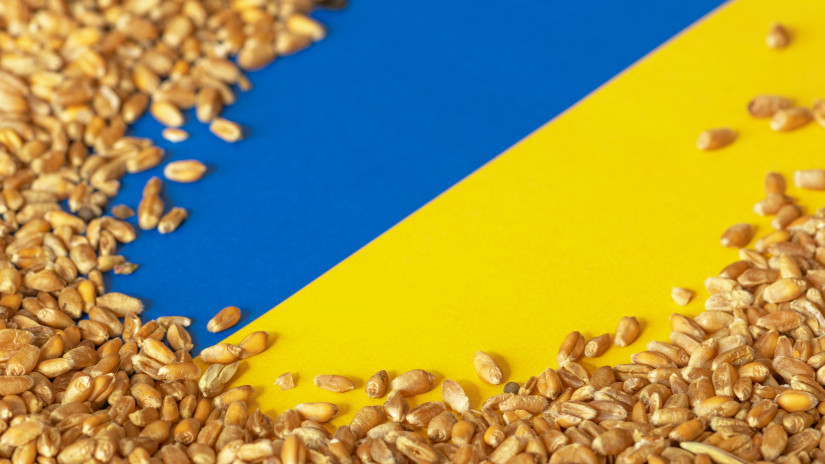The Hungarian population rejects uncontrolled Ukrainian grain dumping, according to the latest survey by Századvég.
On September 15, the European Commission made a decision according to which it will not extend the ban on the import of Ukrainian cereals, which has existed since the spring of 2023. Following the announcement by the Brussels body, the Hungarian government - in order to protect the interests of domestic farmers and consumers - extended the ban in question under national authority and extended it to a wider range of products.
In light of these developments, Századvég examined what Hungarians think about Brussels' intention to oblige Hungary and other EU member states to allow in genetically modified Ukrainian grain of uncontrolled quality.
Following the outbreak of the Russian-Ukrainian armed conflict, due to Russia's blockade of the Black Sea, the export of Ukrainian grain shipments from Ukraine became impossible, therefore, according to Brussels' decision, the neighboring countries (including Hungary) created "solidarity rivers" in order to ensure that the mentioned agricultural products could reach the - to predominantly North African and Asian destination countries.
However, the fact that the majority of shipments did not actually leave Europe led to significant market disruptions, as importers spread cheap but low-quality Ukrainian grain on European markets for profit.
At the end of April, Brussels concluded an agreement with Hungary, Slovakia, Poland, Romania and Bulgaria, which allowed these countries to ban the distribution of Ukrainian cereals in their country until June 5. During the summer, the European Commission extended the measure until September 15, but after its expiration, it refrained from maintaining the ban.

Source: End of the century
It is important to emphasize that Hungarian farmers must comply with extremely strict European Union regulations during the production of their agricultural products, which at the same time ensure the excellent quality of Hungarian cereals.
On the other hand, Ukrainian producers do not have to take into account EU rules, so they also use plant protection agents that are harmful to human health and the environment, and which have been on the banned list in the European Union for several decades, and the cultivation of genetically modified plants is also allowed in Ukraine.
In other words: in Ukraine, cereals that can be produced cheaply, but of objectionable quality, are grown without strict regulations.
In light of this, it is not surprising that, according to public opinion polls, a significant majority of Hungarians reject the pressure from Brussels encouraging grain dumping in Ukraine. The survey highlights that nearly three-quarters (73 percent) of the respondents are against Brussels' intention, which would oblige EU member states, including Hungary, to allow in genetically modified Ukrainian grain of uncontrolled quality.













